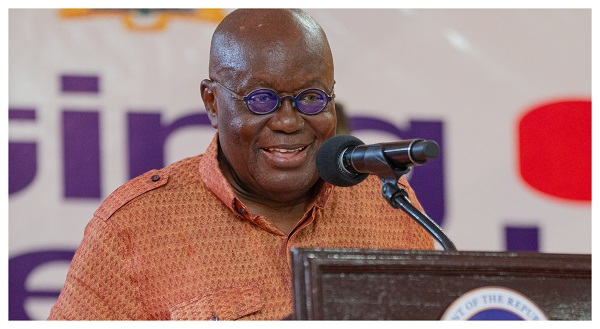When Nana Addo Dankwa Akufo-Addo assumed office as the President of Ghana in January 2017, many hoped his leadership would build on Ghana’s democratic values and further the nation’s progress.
However, as the curtains slowly fall on his eight-year tenure, the facade of statesmanship has cracked, exposing a pettiness, cruelty, ineptitude, and tyranny never before seen in Ghanaian politics.
His presidency, rather than a beacon of democracy, has turned into a tool to perpetuate autocracy and enrich a select few-particularly his family. The toxicity of his presidency on the political landscape is startling.
Cronyism and Nepotism: The Family Business of Governance
One of the starkest marks of Akufo-Addo’s presidency is the pervasive nepotism. His government has been a family affair, with numerous key positions filled by his relatives and close allies. This has eroded trust in the fairness and objectivity of governance. For example, his daughter, Gyankroma Akufo-Addo, was appointed as Director of the Creative Arts Council, a body that regulates the arts industry in Ghana.
His cousin, Ken Ofori-Atta, serves as the Minister of Finance, overseeing the country’s economy during one of its most challenging periods, riddled with economic mismanagement, skyrocketing debt, and questionable decisions like the botched E-Levy implementation. Many Ghanaians have questioned whether Ofori-Atta would have remained in this position had he not been Akufo-Addo’s cousin.
This pattern of familial appointments reveals a president more interested in enriching and protecting his family’s interests than advancing the common good. It also raises serious concerns about conflicts of interest and whether national decisions are being made with the country’s welfare in mind or solely to benefit a small, well-connected elite.
Crushing Dissent: Akufo-Addo’s Weaponization of the Judiciary
Akufo-Addo’s pettiness and vindictiveness have been evident in his handling of political dissent. One notable example is the case of former Auditor-General Daniel Domelevo. Domelevo, known for his tough stance on corruption, particularly in cases involving government officials, became a target of Akufo-Addo’s administration.
In 2021, Domelevo was forced into early retirement under suspicious circumstances, just as he was investigating high-profile cases of corruption involving individuals close to the president. His forced exit was widely seen as retaliation for his anti-corruption efforts and an attempt to silence a public official who dared to hold the government accountable. Moreover, Akufo-Addo’s government has used the courts as a tool to stifle opposition.
The aftermath of the 2020 elections saw several legal battles as opposition leaders sought to challenge the legitimacy of the results. Many observers, both domestic and international, noted that the courts seemed to be under the thumb of the executive, with rulings often favoring the president’s interests. This has led to a decline in public trust in the independence of Ghana’s judiciary-a cornerstone of any functioning democracy.
Suppressing Media Freedom: The Tyrant’s Control of the Narrative
A free press is essential in holding power to account, but Akufo-Addo’s administration has made concerted efforts to silence media critics and journalists who dare to expose corruption or criticize his leadership. Under his watch, press freedom has deteriorated sharply.
In 2021, Ghana dropped 30 places in the World Press Freedom Index, a reflection of the hostile environment journalists now face. Several media houses, including Radio Gold and XYZ Broadcasting, were shut down by the government under the pretext of regulatory infractions. However, many saw this as a calculated move to weaken pro-opposition voices and consolidate control over the media landscape.
Journalists who expose the administration’s shortcomings face harassment, intimidation, and, in some cases, physical harm. The tragic assassination of investigative journalist Ahmed Hussein-Suale in 2019 shocked the nation.
While the perpetrators have not been brought to justice, many speculate that his murder was linked to his investigative work, which implicated high-ranking officials in corruption.
The silence and lack of a thorough investigation by Akufo-Addo’s government raise serious questions about whether the administration is complicit in creating an environment where critical voices are no longer safe.
Tyranny in Governance: The Militarization of Politics
Akufo-Addo’s administration has not shied away from using brute force to maintain its grip on power. The 2020 general elections saw unprecedented levels of violence, with military personnel deployed at polling stations and even shooting live ammunition at civilians.
Several people lost their lives in what should have been a peaceful exercise of democracy. This militarization of elections sends a chilling message: dissent will be met with force, and the will of the people can be suppressed through violence.
Furthermore, his administration has leveraged the military and security forces to intimidate opposition strongholds, especially in regions where the government’s popularity is waning. This tactic of deploying armed forces to suppress political opposition is not only a violation of democratic norms but also a clear indication that Akufo-Addo is willing to cling to power by any means necessary-even if it means turning Ghana into a pseudo-military state.
Conclusion: A Legacy of Tyranny
Akufo-Addo’s presidency has been defined by a level of tyranny that many Ghanaians did not expect. His pettiness, vindictiveness, and willingness to crush opposition have eroded democratic institutions and tarnished Ghana’s reputation as a stable democracy in Africa.
The enrichment of his family, coupled with his suppression of dissent and media freedom, has created an environment where corruption flourishes and accountability is scarce. In the end, history will not look kindly on Akufo-Addo’s reign.
His legacy is one of squandered opportunities and the undermining of democratic ideals. The once-promising leader has, over time, revealed himself to be less of a patriot and more of a tyrant-one whose primary aim was not to govern for the people but to consolidate power and wealth for himself and his inner circle.
Cletus Siebune
New York-USA
